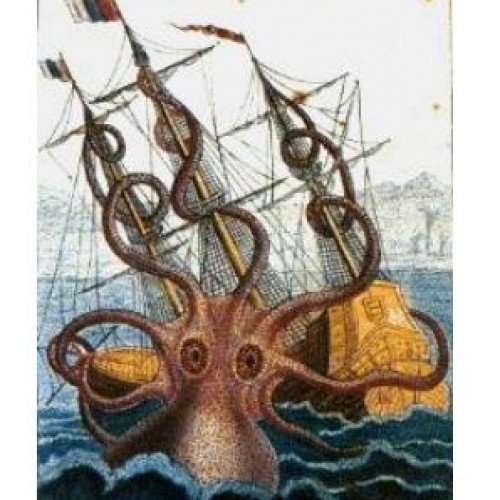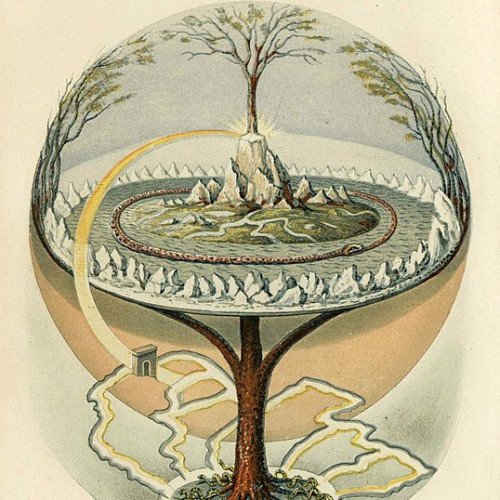Kraken VS World tree

Kraken
The kraken () is a legendary sea monster of gigantic size and cephalopod-like appearance in Scandinavian folklore. According to the Norse sagas, the kraken dwells off the coasts of Norway and Greenland and terrorizes nearby sailors. Authors over the years have postulated that the legend may have originated from sightings of giant squids that may grow to 13–15 meters (40–50 feet) in length. The sheer size and fearsome appearance attributed to the kraken have made it a common ocean-dwelling monster in various fictional works. The kraken has been the focus of many sailors passing the North Atlantic and especially sailors from the Nordic countries. Throughout the centuries, the kraken has been a staple of sailors' superstitions and mythos.
Statistics for this Xoptio

World tree
The world tree is a motif present in several religions and mythologies, particularly Indo-European religions, Siberian religions, and Native American religions. The world tree is represented as a colossal tree which supports the heavens, thereby connecting the heavens, the terrestrial world, and, through its roots, the underworld. It may also be strongly connected to the motif of the tree of life, but it is the source of wisdom of the ages. Specific world trees include égig érő fa in Hungarian mythology, Ağaç Ana in Turkic mythology, Modun in Mongol mythology, Yggdrasil in Norse mythology, Irminsul in Germanic mythology, the oak in Slavic, Finnish and Baltic, Iroko in Yoruba religion, Jianmu in Chinese mythology, and in Hindu mythology the Ashvattha (a Ficus religiosa).